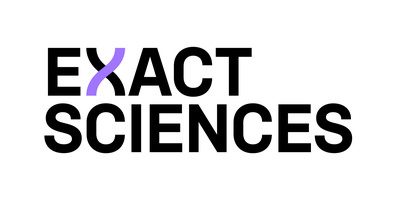Modeling Data Showed Cologuard® Was Superior to Fecal Immunochemical Test (FIT) on Cost Effectiveness and Colorectal Cancer Incidence and Mortality
Exact Sciences Corp. (NASDAQ: EXAS) presented significant findings at the 2021 Digestive Disease Week, demonstrating that Cologuard is cost-effective in reducing colorectal cancer (CRC) incidence and mortality, outperforming traditional tests like FIT and FOBT. Data from a New Hampshire study indicated Cologuard's higher efficacy in predicting neoplasia owing to better detection of serrated polyps. Despite rising colorectal cancer rates among younger adults, 44 million average-risk individuals in the U.S. remain unscreened.
- Cologuard demonstrated cost-effectiveness in reducing CRC incidence and mortality compared to FIT and FOBT.
- Higher predictive accuracy for neoplasia using Cologuard, particularly in detecting serrated polyps.
- None.
Insights
Analyzing...
MADISON, Wis., May 21, 2021 /PRNewswire/ -- Exact Sciences Corp. (NASDAQ: EXAS) today highlights data from one oral and one poster presentation being featured at the 2021 Digestive Disease Week® (DDW®) virtual annual meeting, taking place May 21-23.
Notably, the poster shares data that incorporate real-world patient adherence rates into a colorectal cancer (CRC) microsimulation model. The data showed that Cologuard® (mt-sDNA) was cost effective and provided the greatest reduction in CRC incidence and mortality versus annual fecal immunochemical test (FIT) and annual fecal occult blood test (FOBT) in a representative Medicare population.
Additionally, the oral presentation reports data from the New Hampshire Colonoscopy Registry to compare FIT and Cologuard outcomes in clinical practice. In follow-up colonoscopies performed after a positive stool test result, Cologuard was more likely to predict neoplasia than FIT, largely due to an increased detection of serrated polyps.
Colorectal cancer is the second deadliest cancer impacting both men and women in the U.S. It's also preventable if caught in early stages when it is more treatable.i The disease has been on the rise in younger adults and approximately 44 million average-risk people in the United States remain unscreened.ii
The abstracts are now available on the DDW website. Included below are titles, abstract numbers, and a summary of each abstract.
Cost-Effectiveness of Stool-Based Colorectal Cancer Screening Using Reported Real-World Adherence Rates in a Medicare Population
Abstract Number: Su053
The impact of real-world adherence rates on the cost-effectiveness of specific CRC screening strategies has been unclear. This study used the CRC-AIM microsimulation modeling platform to estimate the cost-effectiveness of stool-based screening strategies using test-specific, real-world adherence data. The analysis found that Cologuard was cost effective and demonstrated the greatest reduction in CRC incidence and mortality versus FIT and FOBT.
The results from the analysis were also published online in the Journal of Medical Economics.
Comparison of Colonoscopy Findings in Patients with Preceding FIT Positive and mt-sDNA Positive Tests to Patients Having Colonoscopy Only: Data From the New Hampshire Colonoscopy Registry
Abstract Number: 886
There are few comparisons of FIT and Cologuard screening test outcomes in clinical practice. Using the New Hampshire Colonoscopy Registry (NHCR), a comprehensive statewide population-based colonoscopy database, the diagnostic yield of colorectal neoplasia in follow-up colonoscopies in patients with a previous positive FIT, Cologuard, or screening colonoscopy were compared. After follow-up colonoscopy,
Media Contact:
Cara Connelly, cconnelly@exactsciences.com, 614-302-5622
Investor Contact:
Megan Jones, meganjones@exactsciences.com, 608-535-8815
About Exact Sciences Corp.
A leading provider of cancer screening and diagnostic tests, Exact Sciences relentlessly pursues smarter answers to give people the clarity to take life-changing action, earlier. Building on the success of Cologuard and Oncotype® tests, Exact Sciences is investing in its product pipeline to support patients throughout their cancer diagnosis and treatment. Exact Sciences unites visionary collaborators to help advance the fight against cancer. For more information, please visit the company's website at www.exactsciences.com, follow Exact Sciences on Twitter @ExactSciences, or find Exact Sciences on Facebook.
Note: Oncotype, Oncotype DX, Oncotype DX Breast Recurrence Score, Oncotype DX Breast DCIS Score, Oncotype DX Genomic Prostate Score, Oncotype MAP Pan-Cancer Tissue, and Oncotype DX AR-V7 Nucleus Detect are trademarks or registered trademarks of Genomic Health, Inc. Exact Sciences and Cologuard are trademarks or registered trademarks of Exact Sciences Corporation.
About Cologuard
Cologuard was approved by the FDA in August 2014, and results from Exact Sciences' prospective 90-site, point-in-time, 10,000-patient pivotal trial in adults 50 years of age or older were published in the New England Journal of Medicine in March 2014. Cologuard is included in the American Cancer Society's (2018) colorectal cancer screening guidelines and the recommendations of the U.S. Preventive Services Task Force (2016) and National Comprehensive Cancer Network (2016). Cologuard is indicated to screen adults 45 years of age and older who are at average risk for colorectal cancer by detecting certain DNA markers and blood in the stool. Do not use Cologuard if you have had precancer, have inflammatory bowel disease and certain hereditary syndromes, or have a personal or family history of colorectal cancer. Cologuard is not a replacement for colonoscopy in high risk patients. Cologuard performance in adults ages 45-49 is estimated based on a large clinical study of patients 50 and older. Cologuard performance in repeat testing has not been evaluated.
The Cologuard test result should be interpreted with caution. A positive test result does not confirm the presence of cancer. Patients with a positive test result should be referred for diagnostic colonoscopy. A negative test result does not confirm the absence of cancer. Patients with a negative test result should discuss with their doctor when they need to be tested again.
Medicare and most major insurers cover Cologuard. For more information about Cologuard, visit www.cologuard.com. Rx Only.
Forward-Looking Statements
This news release contains forward-looking statements concerning our expectations, anticipations, intentions, beliefs or strategies regarding the future. These forward-looking statements are based on assumptions that we have made as of the date hereof and are subject to known and unknown risks and uncertainties that could cause actual results, conditions and events to differ materially from those anticipated. You should not place undue reliance on forward-looking statements. Risks and uncertainties that may affect our forward-looking statements are described in the Risk Factors sections of our most recent Annual Report on Form 10-K and any subsequent Quarterly Reports on Form 10-Q, and in our other reports filed with the Securities and Exchange Commission. We undertake no obligation to publicly update any forward-looking statement, whether written or oral, that may be made from time to time, whether as a result of new information, future developments or otherwise.
i American Cancer Society. Key Statistics for Colorectal Cancer. https://www.cancer.org/cancer/colon-rectal-cancer/about/key-statistics.html. Accessed May 18, 2021.
ii Piscitello A, Edwards DK. Estimating the screening-eligible population size, aged 45 to 74, at average risk to develop colorectal cancer in the United States. Cancer Prev Res. 2020;13(5):443-448.
![]() View original content to download multimedia:http://www.prnewswire.com/news-releases/modeling-data-showed-cologuard-was-superior-to-fecal-immunochemical-test-fit-on-cost-effectiveness-and-colorectal-cancer-incidence-and-mortality-301296733.html
View original content to download multimedia:http://www.prnewswire.com/news-releases/modeling-data-showed-cologuard-was-superior-to-fecal-immunochemical-test-fit-on-cost-effectiveness-and-colorectal-cancer-incidence-and-mortality-301296733.html
SOURCE EXACT SCIENCES CORP







